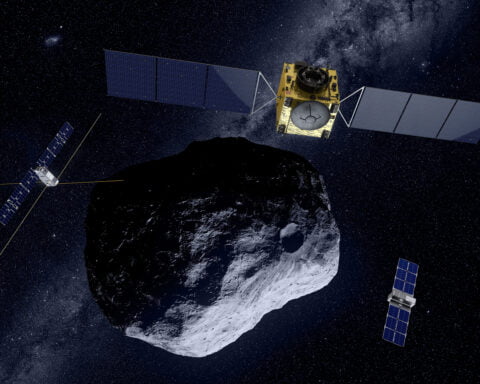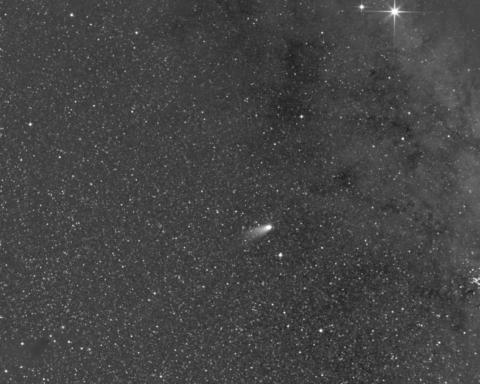On Thursday 23 December, the James Webb Space Telescope, safely stowed inside the fairing of ESA’s Ariane 5 launch vehicle, left the final assembly building for roll-out to the launch pad at Europe’s Spaceport in French Guiana.
Webb, no longer in sight since its encapsulation in the fairing on 17 December, has been closely monitored. The fairing is equipped with specialised environmental controls that keep the observatory in a perfectly controlled temperature and humidity range during its final few days on Earth.
Ariane 5, standing 53 m high on its mobile launch platform was transported along rails from the final preparation building to the launch zone where final health checks and preparations for liftoff will occur.
This includes filling the propellant tanks of the Ariane 5 core stage with liquid oxygen and liquid hydrogen via lines through the launch table.
Final electrical and software configurations will also occur on the launch pad. Webb will switch to internal battery power about 20 minutes prior to liftoff, and within 15 minutes prior to liftoff the observatory and its launch vehicle will both be fully cleared for flight.
Webb will be the largest, most powerful telescope ever launched into space. As part of an international collaboration agreement, ESA is providing the telescope’s launch service using the Ariane 5 launch vehicle. Working with partners, ESA was responsible for the development and qualification of Ariane 5 adaptations for the Webb mission and for the procurement of the launch service by Arianespace.
Webb is an international partnership between NASA, ESA and the Canadian Space Agency (CSA).






